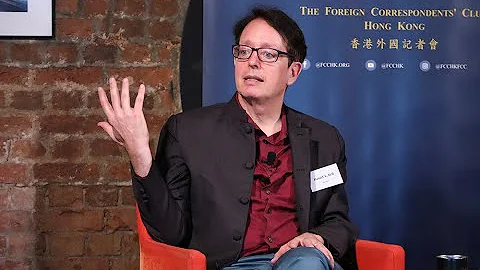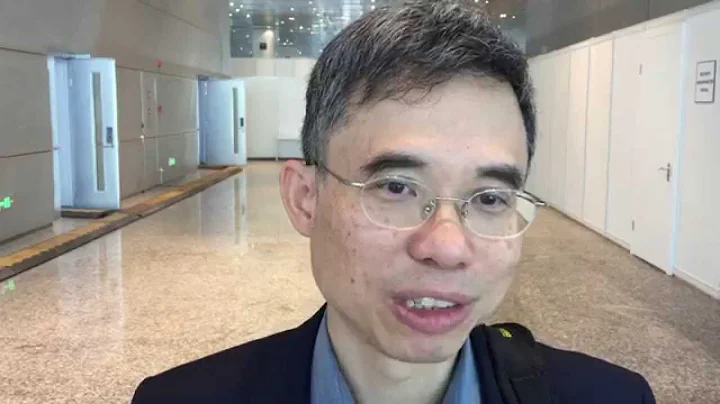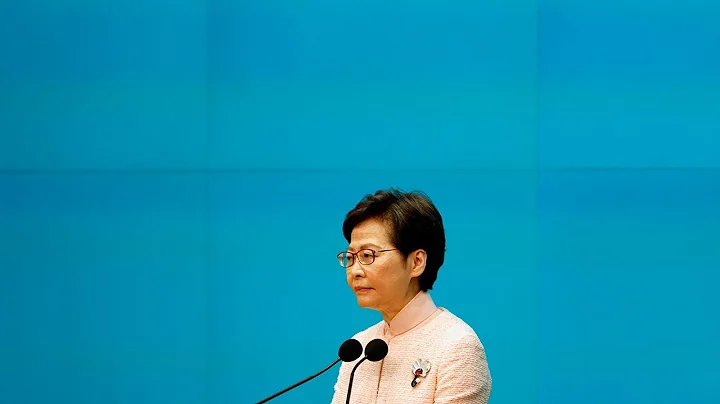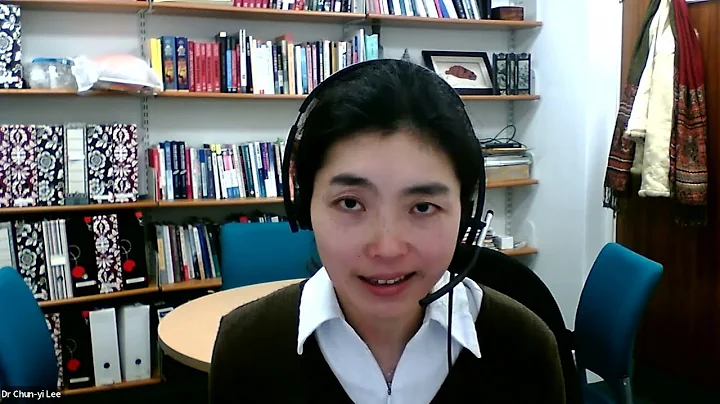Nandu reporter learned that this roundtable dialogue focused on strengthening exchanges and cooperation between the mainland (mainland) and Hong Kong, Macao and Taiwan's science and technology circles, creating conditions and providing services for Hong Kong, Macao and Taiwan science and technology workers to integrate into the development of the mainland (mainland), and exploring and supporting the establishment of science and technology work to serve Hong Kong, Macao and Taiwan. exchange and discuss content such as the author’s organizational system.
Chairman of the Hong Kong Zhi Gong Association and Dean of the School of Geography and Environment of Jiangxi Normal University, Lin Hui, said in the roundtable dialogue that in view of the current international situation , our country urgently needs to create connecting belts and nodes for dual cycle development. Hong Kong's science and technology team is China's science and technology team has highly international characteristics, and Hong Kong can become an important base for international cooperation of the China Association for Science and Technology.
From teaching in Hong Kong to returning to his hometown to teach, Lin Hui often told his overseas friends, "If you live a small life abroad, you will have the opportunity to do a big career when you come back." He said that compared with when he went abroad more than 30 years ago, the mainland has better resources and Investment in scientific research is very large. "Our talents, especially our aerospace talents, are very exciting to see. A group of young and middle-aged people are taking the lead, which makes everyone very confident."

Lin Hui Academician of the British Academy of Social Sciences, Academician of the International Eurasian Academy of Sciences , Hong Kong President Chairman of the Geographical Information Association, Chief Scientist of Hong Kong Aerospace Science and Technology Corporation, Founding Director of the Institute of Space and Earth Information Science of the Chinese University of Hong Kong, Founding Chairman and Honorary Chairman of the International Chinese Geographic Information Science Association (CPGIS), currently serving as Geography and Environment of Jiangxi Normal University Dean of the College and Director of the Key Laboratory of Poyang Lake Wetland and Watershed Research of the Ministry of Education.
Over the years, she has promoted geographical environmental technology cooperation between Hong Kong and the Mainland.
In 1980, Lin Hui graduated from Wuhan University of Science and Technology of Surveying and Mapping. In the same year, she was admitted to the Graduate School of the Chinese Academy of Sciences and studied remote sensing and geographic information systems under Academician Peng Shen. In 1986, Lin Hui went to the United States to study for a doctorate. Lin Hui joined the Chinese University of Hong Kong in 1993 and served as the director of the Institute of Space and Earth Information Science of the Chinese University of Hong Kong. In August 2019, Lin Hui became the dean of the School of Geography and Environment of Jiangxi Normal University.
During his teaching career in Hong Kong, Lin Hui has been promoting cooperation in geographical environment technology between Hong Kong and the Mainland. When he returned to China in 1993 and came to the Chinese University of Hong Kong, it was a time when the Chinese University of Hong Kong wanted to introduce talents to create a first-class university. Lin Hui recalled a conversation with the president of the Chinese University of Hong Kong at the time, "I said if you don't cooperate with the first-class teams in China, how can you become a world-class team?"
Lin Hui, who had just arrived at the Chinese University of Hong Kong, actively contacted , where he had studied. Chinese Academy of Sciences , discuss cooperation together. With the support of the school and relevant departments, less than two months after Hong Kong returned to , the Chinese University of Hong Kong established the Chinese Academy of Sciences and the Chinese University of Hong Kong Earth Information Science Joint Laboratory. This was also after Hong Kong's return to the motherland on July 1, 1997. is one of the first joint research institutions established by the Chinese Academy of Sciences and Hong Kong universities.
In 2000, Lin Hui took the lead in establishing the first "national" scientific research unit in Hong Kong universities - the National Remote Sensing Center Hong Kong Base, and established the Hong Kong Satellite Remote Sensing Center jointly supported by the Ministry of Science and Technology and the Innovation and Technology Commission of the Hong Kong SAR Government. ground station.
For decades, Lin Hui has been committed to the development of remote sensing of cloudy and rainy environments, virtual geographical environments, and spatial integrated humanities and social sciences. He told reporters that 85% of natural disasters in my country occur in cloudy and rainy environments, including typhoons, heavy rainfall, floods, landslides, mudslides, and surface subsidence. Therefore, cloudy and rainy remote sensing technology not only involves the forefront of remote sensing technology, but also has extremely important application value for my country's ecological security, food security, and disaster prevention and relief.

China Association for Science and Technology should make good use of Hong Kong’s international window
"Science cannot be done behind closed doors. I remember an academician said something very humorous a long time ago. He said, 'We are called the Chinese Academy of Sciences, not "Zhongguancun Academy of Sciences, we can't make it a first-rate institution with our doors closed, so we still need to open our doors and take the road of internationalization," Lin Hui told reporters.
At the roundtable dialogue of science and technology workers from Hong Kong, Macao and Taiwan held at the annual meeting of the China Association for Science and Technology, Lin Hui suggested in his speech that the China Association for Science and Technology should make good use of Hong Kong’s international window and establish a Hong Kong science and technology center that has substantive working ties with the China Association for Science and Technology. Technology Association to build a science and technology exchange and dissemination base in Hong Kong, China.
He said that Hong Kong has strong basic scientific research strength and has special advantages in international scientific and technological cooperation: for example, Hong Kong has mutual visa exemptions with more than 160 international countries, and the bilingual teaching and working environment in Chinese and English facilitates international scholars to visit and exchange at any time. Organize international academic activities in a timely manner. In addition, most of Hong Kong's scientific and technological talents have overseas study and work backgrounds, and have close ties with famous universities, advanced scientific research institutions, top international technology companies, and important international financial institutions around the world, which is conducive to the formation of world-class multinational scientific research teams.
At the same time, Hong Kong’s convenient customs system is conducive to the implementation of internationally advanced high-tech. Hong Kong can allow mainland scholars and high-tech enterprises to come to Hong Kong in a timely manner to connect with relevant technologies, which will facilitate the introduction of international advanced technologies and will also help mainland technology enterprises connect with their international counterparts. The low tax rate policy of the Hong Kong government can attract the headquarters of international technology companies to settle there, making it easier for Chinese technology companies and universities to participate in the R&D plans of international technology companies through Hong Kong.
"In view of the current international situation, our country urgently needs to create connecting belts and nodes for dual cycle development. The China Association for Science and Technology should give full play to its own characteristics and advantages, make good use of Hong Kong's international advantages and high-level talent advantages, and broaden Hong Kong's science and technology team to integrate into the national science and technology Develop especially the Guangdong-Hong Kong-Macao Greater Bay Area technology development approach, and consolidate the social foundation for Hong Kong’s science and technology industry to be integrated into the motherland’s science and technology industry. "
Live a small life outside, and have the opportunity to do big things when you come back.
In 2019, Lin Hui returned to his hometown of Jiangxi. , currently the dean of the School of Geography and Environment of Jiangxi Normal University, and he is also the director of the Key Laboratory of Poyang Lake Wetland and Watershed Research of the Ministry of Education.
"Before, the media always asked me questions such as 'giving up overseas benefits and returning to China'. I said don't say this. I didn't give up anything. I don't need a reason to go home. Many people overseas have lost their family ties. I think they I have lost too much." After returning, he often told his overseas friends, "I said that if you live a small life outside, you will have the opportunity to do a big career when you come back."
Lin Hui's personal experience has been with him for more than 30 years. Compared to when I went abroad, the mainland now has very large investment in science and technology funding and research. "People are particularly happy to see our talents, especially in aerospace. A group of young and middle-aged people are serving as commanders. The whole trend makes everyone very confident."
However, he also felt from his own personal experience and that of people around him. To make outstanding talents from all over the world willing to come to China, supporting facilities must keep up.
For example, although some scientists who returned from overseas have been introduced to the mainland as high-end talents, the details of life support need to be improved, such as providing medical insurance. Lin Hui said that coastal areas are more open, and Guangdong, for example, has done better and will provide five insurances and one fund and other similar protection measures to relieve foreign experts' worries. However, due to lack of experience in the mainland, there will be deficiencies in this aspect.
In terms of scientific research projects, Lin Hui said that China does not lack resources, but at the same time some clique culture also exists in the scientific and technological circles. This is also where some foreign experts or scientific and technological personnel from Hong Kong, Macao and Taiwan feel a little acclimated after coming to the mainland. He also suggested that if the use of funds, selection mechanisms and evaluation mechanisms are more fair and reasonable in the future, science and technology will surely make greater progress.
Lin Hui said that not everyone's return will be so smooth, so a very important job for him now is to help many young people who have returned to China and the mainland, help them connect with some national and local resources, and help them overcome the problem of acclimatization. It also includes how to find development opportunities. Now the country has many needs, and scientific researchers cannot just wait, but must take the initiative to fight for and act on their own initiative.
"From personal experience, I feel that not only can I spend time with my family here, but I can also do a bigger career, which is very attractive." He said.
Written by: Nandu reporter Wang Fan from Changsha, Hunan





















